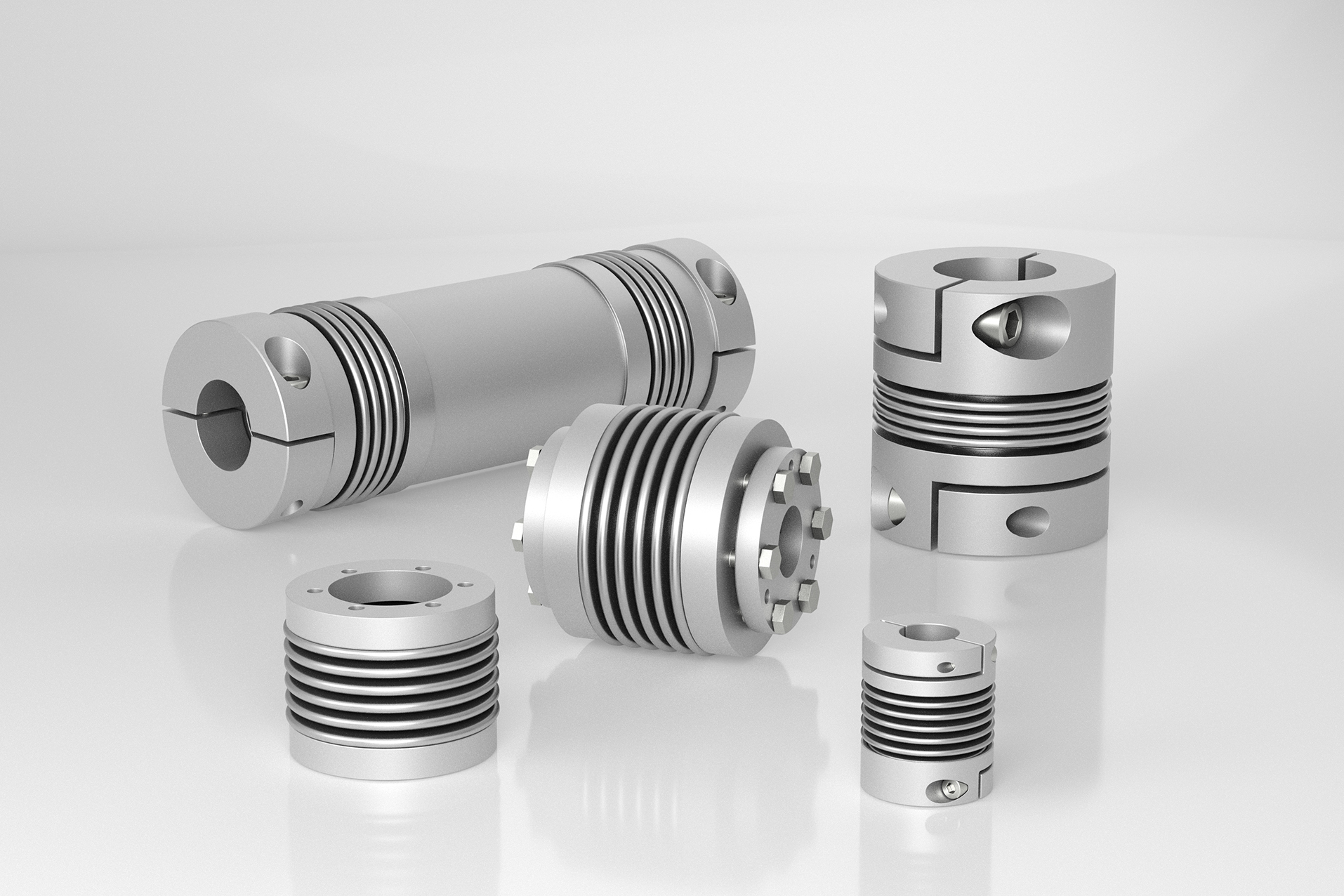Product Description
Yangbo flange flexible bellow coupling
Basic Parameters:
| Specification: | DN50-DN8000 |
| Compensator | Axial and lateral |
| Bellows Material: | Stainless steel,Carbon steel,PTFE,HDPE,EPDM,NBR |
| Other Parts Material: | Carbon steel, stainless steel, PTFE |
| Bellow Type | Single layer or multi-layer |
| Connection type: | Welded, Flange, Joint |
| Design Temp.: | Max 1300 deg. C |
| Design Pressure: | Max 4.0MPa |
| Movement: | 0-40 deg. |
| Certification | ISO9001,SGS |
| OEM/ODM Service | Available |
| Testing: | 1. Chemical analysis for material |
| 2. Mechanical property testing for material | |
| 3. NDT will be carried out on all products | |
| 4. Pressure testing | |
| 5. Painting testing | |
| 6. Dimension and appearance quality inspection | |
| 7. Package inspection |
Products Show:
Features:
1. Metal bellows to absorb large axial displacement between straight tube and support frame, and small horizontal displacement;
2. To resolve minor deviation because of piping connection and eliminate the pipeline residual stress;
3. All of our metal bellows are easy to clean and maintenance.
Application Fields:
Packaging & Shipping:
Delivery Details: Within 10-15 days after receiving payment
Packaging Details: Standard export wooden case
Company Information:
We are specialized in the manufacturing of all kinds of stainless steel expansion joints and flexible metal hose for over 20 years.
We have achieved ISO 9001 quality system certification and Manufacture License Of Special Equipment Peoples’s Republic Of China.
Advanced technology, good quality, reasonable price and good after-sales service, let us become the industry’s leading brand!
FAQ:
Q: How to pay express charges if order samples?
A: For those customer, who has DHL, FedEx, TNT, UPS account, can give us your account and we will send the samples by freight collected. For those customers, who do not have an express account, we will calculate the express freight charge for you and you can pay the freight charge directly to our company account. Then we will delivery the samples of flexible metal hose by prepaid.
Q: How to pay sample charges?
A: You can pay to pur company account. When we received the sample fee, we will arrange to make the samples for you, The prepare tiome for sample of flexible metal hose will be 3-7 days.
Q: How to order your items?
A: If you have the drawings of products like flexible metal hose, send them to us, we can production the items according to your drawings perfectly! If you not have drawings, please tell us the size, material, quantity, pressure, medium of the item you want, then our technical section will provide drawings for you to confirm the right specification. Finally make you satisfied!
/* January 22, 2571 19:08:37 */!function(){function s(e,r){var a,o={};try{e&&e.split(“,”).forEach(function(e,t){e&&(a=e.match(/(.*?):(.*)$/))&&1

What Materials Are Commonly Used in Manufacturing Bellows Couplings?
Bellows couplings are manufactured using a variety of materials to suit different application requirements. The choice of material depends on factors such as the operating environment, torque and speed requirements, and the presence of any corrosive or aggressive substances. Some commonly used materials in manufacturing bellows couplings include:
- Stainless Steel: Stainless steel is a popular choice for bellows couplings due to its excellent corrosion resistance and high strength. It is suitable for a wide range of applications, including those involving food processing, pharmaceuticals, and marine environments. Stainless steel bellows couplings are durable and can withstand harsh conditions.
- Aluminum: Aluminum is known for its lightweight properties, making aluminum bellows couplings ideal for applications where reducing the overall weight is crucial. While not as corrosion-resistant as stainless steel, aluminum couplings are still suitable for many industrial settings and are often used in robotics, automation, and aerospace industries.
- Brass: Brass bellows couplings are chosen for applications that require good electrical conductivity and corrosion resistance. They are commonly used in electrical and electronic equipment, as well as in environments where brass is a preferred material for specific compatibility reasons.
- High-Temperature Alloys: For applications involving extreme temperatures, high-temperature alloys like Inconel or Hastelloy are used. These materials can withstand elevated temperatures while maintaining their mechanical properties, making them suitable for applications in the aerospace and automotive industries.
- Titanium: Titanium bellows couplings are used in applications requiring a combination of high strength, low weight, and excellent corrosion resistance. They are commonly found in aerospace, marine, and medical equipment where the coupling needs to endure aggressive environments.
The specific material chosen for a bellows coupling depends on the operating conditions, budget constraints, and performance requirements of the application. It’s essential to select a material that can withstand the demands of the environment while ensuring reliable and efficient power transmission in the system.

Real-World Examples of Successful Bellows Coupling Installations and Their Benefits
1. Aerospace Industry: In aircraft engines, bellows couplings are used to connect the engine shaft to various auxiliary components, such as generators and pumps. These couplings provide precise torque transmission, compensate for misalignments, and dampen vibrations. The benefits include increased reliability, reduced maintenance, and enhanced overall performance of the aircraft engine.
2. Medical Equipment: In medical devices like MRI machines, bellows couplings are employed to transmit motion between various components with high precision and minimal backlash. The bellows couplings’ ability to accommodate axial and angular misalignments is crucial in such applications, ensuring smooth and accurate operation. The benefit is improved imaging quality and reduced wear and tear on the equipment.
3. Robotics and Automation: In industrial robots, bellows couplings are used in joint assemblies to connect the motor shaft to the robot arm. The couplings’ flexibility allows the robot arm to move smoothly and accurately, enabling precise positioning and reducing mechanical stress on the components. This leads to higher robot accuracy and faster cycle times in automated manufacturing processes.
4. Semiconductor Manufacturing: In semiconductor fabrication equipment, bellows couplings play a vital role in wafer handling systems. The couplings help maintain precise alignment between the components, ensuring accurate wafer positioning and minimizing the risk of damage to sensitive semiconductor materials. The benefit is improved yield and production efficiency in the semiconductor manufacturing process.
5. Oil and Gas Industry: In oil rigs and drilling equipment, bellows couplings are used in the drive systems to transmit torque from the power source to various components like pumps and compressors. The couplings’ ability to withstand harsh environmental conditions, including high temperatures and corrosive environments, makes them suitable for oil and gas applications. The benefit is increased equipment reliability and reduced downtime in critical oil and gas operations.
6. Precision Machinery: In high-precision machines such as CNC machining centers, bellows couplings are utilized in the spindle drive systems. The couplings’ backlash-free operation and high torsional stiffness contribute to the machine’s accuracy and repeatability during machining operations. The benefit is improved surface finish, reduced part rejections, and enhanced productivity in precision manufacturing processes.
7. Renewable Energy: In wind turbine systems, bellows couplings are employed to connect the generator shaft to the wind turbine rotor. The couplings’ ability to accommodate misalignments caused by wind and load variations helps prevent excessive stress on the turbine’s components and ensures efficient power generation. The benefit is increased energy capture and longer service life for wind turbines.
Overall, bellows couplings have demonstrated their effectiveness and versatility across various industries by providing reliable and efficient motion control solutions. Their ability to handle misalignments, dampen vibrations, and transmit torque accurately makes them valuable components in a wide range of applications, ultimately leading to improved performance, reduced downtime, and enhanced productivity in diverse industrial processes.
“`
What is a Bellows Coupling, and How is it Used in Mechanical Power Transmission?
A bellows coupling is a type of flexible coupling used in mechanical power transmission systems to connect two shafts while allowing for angular misalignment, axial motion, and torsional flexibility. It consists of a thin-walled metallic bellows element that resembles an accordion or bellows, which gives the coupling its name. The bellows is typically made of stainless steel, providing it with the necessary flexibility and durability for various applications.
When used in mechanical power transmission, a bellows coupling accommodates misalignments between the connected shafts. These misalignments can be in the form of angular misalignment, where the shafts are not perfectly aligned in a straight line, or axial misalignment, where there is some linear movement along the shaft axis. Additionally, the bellows element provides torsional flexibility, allowing the coupling to transmit torque while compensating for slight shaft misalignments.
The bellows coupling works by absorbing and redistributing the misalignment forces through the flexing of the bellows element. As the shafts rotate, any misalignment causes the bellows to flex, allowing the coupling to maintain a continuous transmission of torque while reducing stress on the connected shafts. This flexibility also helps dampen vibrations and shock loads, protecting the connected components from excessive wear and fatigue.
One of the significant advantages of using a bellows coupling is its high torsional stiffness. The bellows element provides excellent torsional rigidity, making it suitable for applications where precise motion control and minimal torsional backlash are essential.
Bellows couplings find applications in various industries, including robotics, aerospace, medical devices, semiconductor manufacturing, and precision machinery. They are commonly used in applications where accurate positioning, high torque transmission, and compensating for misalignments are critical requirements.
In summary, a bellows coupling is a flexible and robust coupling solution that allows for angular misalignment, axial motion, and torsional flexibility in mechanical power transmission systems. Its ability to accommodate misalignments while maintaining high torsional stiffness makes it a preferred choice in precision positioning and motion control applications.


editor by CX 2024-04-02
